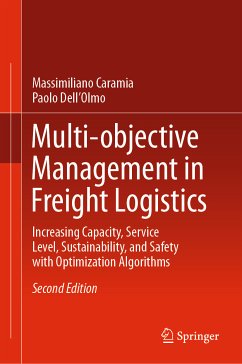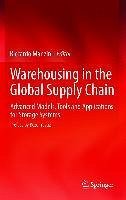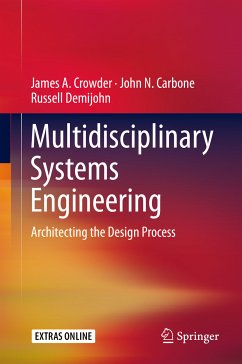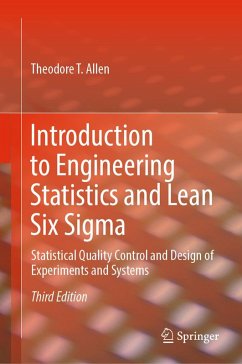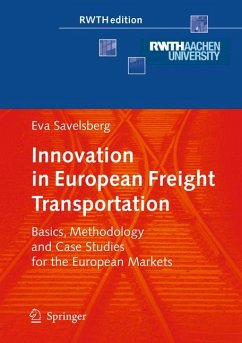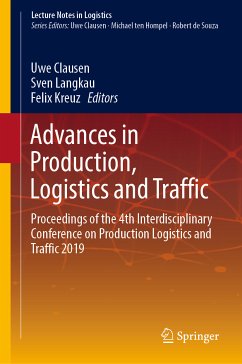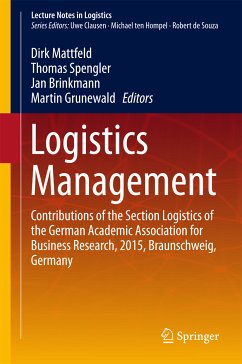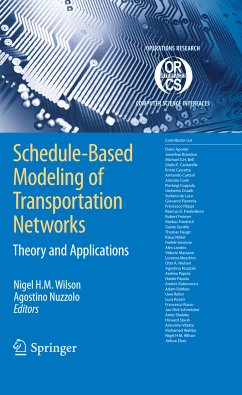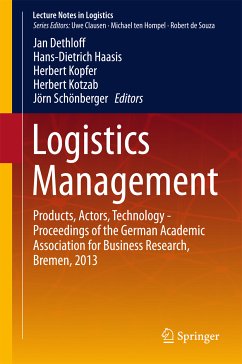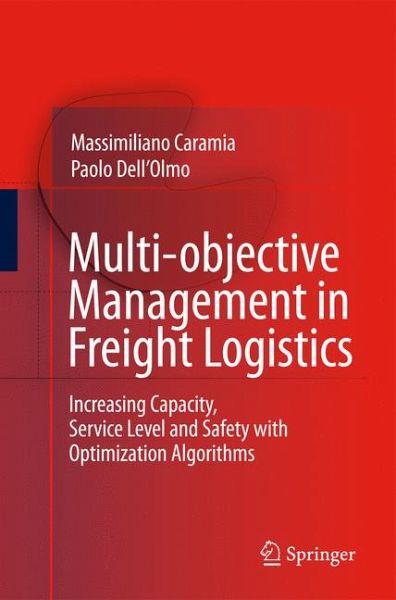
Multi-objective Management in Freight Logistics (eBook, PDF)
Increasing Capacity, Service Level and Safety with Optimization Algorithms
Versandkostenfrei!
Sofort per Download lieferbar
72,95 €
inkl. MwSt.
Weitere Ausgaben:

PAYBACK Punkte
36 °P sammeln!
Thecontentofthisbookismotivatedbytherecentchangesinglobalmarketsandthe availability of new transportation services. Indeed, the complexity of current supply chains suggests todecision makers in logisticsto work witha set ofef?cient (Pare- optimal) solutions, mainly to capture different economical aspects that, in general, one optimal solution related to a single objective function is not able to capture - tirely. Motivated by these reasons, we study freight transportation systems with a speci?c focus on multi-objective modelling. The goal is to provide decision m- ers with new methods and tool...
Thecontentofthisbookismotivatedbytherecentchangesinglobalmarketsandthe availability of new transportation services. Indeed, the complexity of current supply chains suggests todecision makers in logisticsto work witha set ofef?cient (Pare- optimal) solutions, mainly to capture different economical aspects that, in general, one optimal solution related to a single objective function is not able to capture - tirely. Motivated by these reasons, we study freight transportation systems with a speci?c focus on multi-objective modelling. The goal is to provide decision m- ers with new methods and tools to implement multi-objective optimization models in logistics. The book combines theoretical aspects with applications, showing the advantages and the drawbacks of adopting scalarization techniques, and when it is worthwhile to reduce the problem to a goal-programming one. Also, we show - plications where more than one decision maker evaluates the effectiveness of the logistic system and thus a multi-level programming is sought to attain meaningful solutions. After presenting the general working framework, we analyze logistic - sues in a maritime terminal. Next, we study multi-objective route planning, relying on the application of hazardous material transportation. Then, we examine freight distribution on a smaller scale, as for the case of goods distribution in metropolitan areas. Finally, we present a human-workforce problem arising in logistic platforms. The general approach followed in the text is that of presenting mathematics, al- rithms and the related experimentations for each problem.
Dieser Download kann aus rechtlichen Gründen nur mit Rechnungsadresse in A, B, BG, CY, CZ, D, DK, EW, E, FIN, F, GR, HR, H, IRL, I, LT, L, LR, M, NL, PL, P, R, S, SLO, SK ausgeliefert werden.



